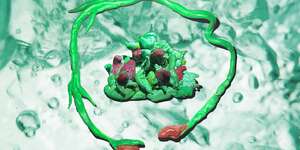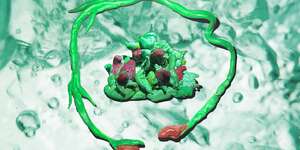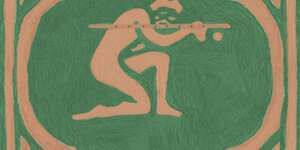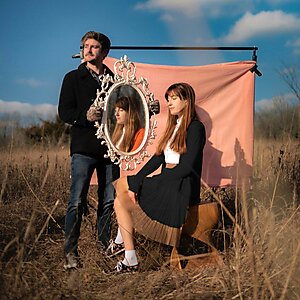Young Prisms
Young Prisms
country: California, USA
genre: Alternative
styles: Shoegaze, Rock, Indie Rock
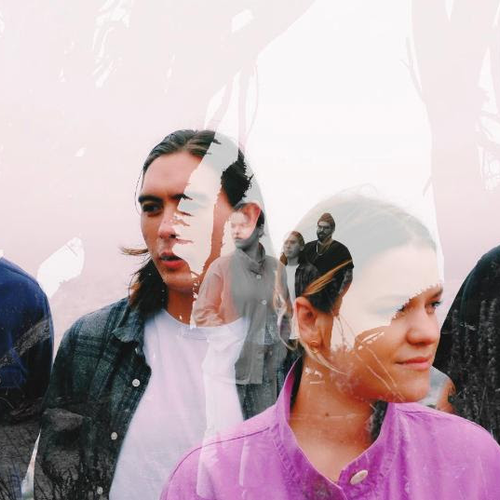
Self Love
 Single
Single
Spotify Bandcamp Soundcloud
Reviews and Comments
Drifter is a record that finds steadiness in the embrace of uncertainty. Young Prisms have always delivered stories that have remained mostly shrouded in a dreamlike state, the kind of dreams where you never quite get to where you’re aiming to go, and the ones which unravel in melancholy when you open your eyes and reality sets in. With their first new music in ten years, the band explores the tension and release that comes with bringing your head down from the clouds and making sense of the tangible entanglements that make up everyday existence. "You’ve spent your whole life wondering if you’ll ever live up to your own expectations, but one day realize that it’s ok to just be a normal, boring human. You’re used to running away from life because you hate yourself and now you are pleasantly surprised by a new feeling to let go and accept yourself,” explains lead vocalist Stefanie Hodapp.
Comprised of Hodapp (vocals, synthesizer), Matthew Allen (vocals, guitar, bass, synthesizer, drum programming), Giovanni Betteo (bass, guitar, synthesizer, drum programming) and Jordan Silbert (drums), Young Prisms have gone through an evolution of tough love and resilient perseverance. Betteo and Allen first started playing music together in middle school, eventually leading to the first iteration of Young Prisms in 2009, and the release of a self-titled EP on esteemed indie tastemaker Mexican Summer followed by two full lengths (2011’s Friends For Now and 2012’s In Between) on Kanine Records. Coming of age during a time where the band’s blend of introspective shoegaze and gauze-laden guitar earned them tours with bands like the Radio Dept, Dum Dum Girls, A Place to Bury Strangers and Moon Duo, Young Prisms never quite reached the same heights of commercial success afforded to some of their peers. In between, life happened: Hodapp and Betteo experienced the highs and lows of a romantic relationship, complete with raising a child together, and Silbert moved across the country from San Francisco to New York, where he currently resides. The band never officially broke up, but took some much-needed space that would make possible their eventual return that, when the timing was right, proved more essential than ever before.
Shoegaze itself has gone through its own sort of rebirth in the past decade, with a new generation finding inspiration through the heavy reverb and all-encompassing emotive textures that present a lens left-field of emo (which has seen a similar resurgence in recent years) that remains both engaging and poignantly affective. It became clear the music they made stretched further than the course they’d assumed their band had run and with this renewed outlook were able to reimagine the impact of their trajectory. From a wiser place the band reset those expectations with the romance of possibility, and entered the studio for the first time in nearly a decade.
Recorded from June 2020 through February 2021 and produced by Shaun Durkan (Weekend, Soft Kill), Drifter is the greater sum of its parts - a collaborative effort with all of the members contributing songwriting credits. Inherently, it represents a reprise, a second chance to present a full-formed vision that results in the band’s purest pursuit yet. From the ethereal noise pop of lead single “Honeydew” to the resounding incandescence of “Self Love” or “Outside Air”, the band moves forward past nostalgia towards a sound that resonates in its timeless expression of love at its most volatile and transcendent. One way to absorb the dimensions of Drifter is to look up at the sky. On one hand, tracks like “Violet” were inspired by the lovelorn quality of sunrise driving down the coast, and the heady romanticism of new beginnings. There’s also the haunting omnipresence of loss; written during some of the worst of the California wildfires, every expression of hope comes with the acceptance that darkness and death are just as unavoidable factors in human existence. In Young Prisms’ world, being on the precipice of destruction - whether it be a fractured relationship or lifestyle choices that never lived up to societal pressures and expectations - has a counterpoint in healing self-reflection, where they were finally able to carve out the path that was meant for them all along.
At its core, Drifter is about the human experience and finding a balance between the thrills and intensity of wanting - another person, a better life - and the quiet rewards of finding peace in domesticity, whatever shape that may take. As the band explains, the central chorus of “I believe in you, honeydew” changes meaning as you realize that you can’t fix things, but you can figure out how to believe in yourself.” In many ways, Drifter feels like a homecoming - throughout the flux of growing older and not necessarily growing up in the ways you expected, the band has found their footing with the time afforded when you finally take the pressure off. It’s a record that could have only been made with real passage of time, through the world-weary vantage point of a group of friends that can’t stop coming back to each other. "Drifter gave my inner demons permission to surface and form into something less despondent. I tend to draw inspiration from my more crippling moments, but as we’ve matured I've found happiness in practicality and maybe there’s a source in that, too."
latest releases





